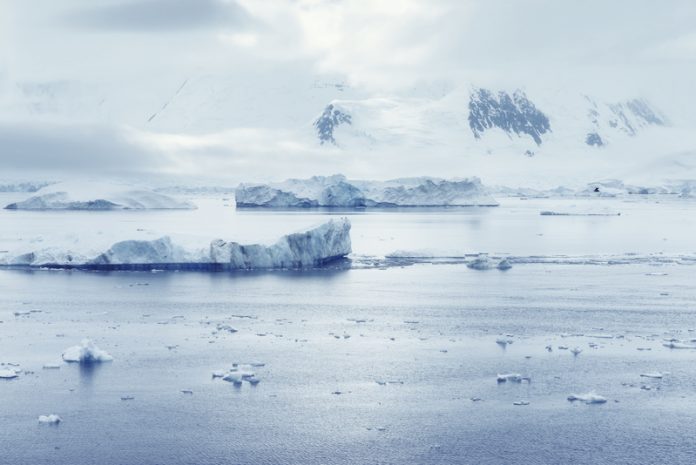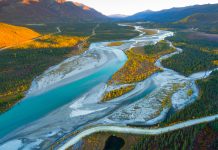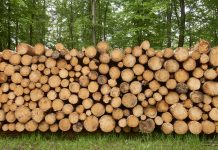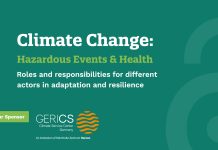
Nate Bauer and Hajo Eicken from the International Arctic Research Center (IARC), highlight how research can help gain invaluable knowledge about the Arctic and its surrounding environments
Across the Arctic, researchers continue to identify signals that the region and its ecosystems act as an important amplifier of global climate change. While the immediate effects within the Arctic are evident in drastic changes to sea ice, glaciers, ice sheets, and permafrost, these factors may further result in changing the weather at mid-latitudes and beyond. As noted in the most recent U.S. National Climate Assessment (NCA2014) 1, more open Arctic water may play a role in a shifting jet stream associated with changes in the “polar vortex”, leading to recent, historically severe winter weather across much of the United States. Further, Arctic people and ecosystems are increasingly strained by the rapid rate of environmental change, outpacing the rest of the globe. These changes have attracted increasing global attention, as a burgeoning focal point for international diplomacy, resource development, and commercial shipping, among other urgent global interests.
The International Arctic Research Center (IARC) at the University of Alaska Fairbanks (UAF) exists to facilitate the international, collaborative, multidisciplinary study of many of the component factors of the Arctic system, including impacts on human activities and ecosystems. The organisation and its researchers strive to highlight the potential, and the necessity, of collaboration and cooperation within Arctic science, cutting across the international research community, private and governmental agencies, indigenous organisations, and Arctic residents, industry, NGOs, and many other stakeholder groups. As America’s Arctic University, UAF – and IARC in particular – have served as centres for gathering and exchange for these groups.
Currently, over 20 international groups and 100 scientists collaborate through IARC, via projects including an internationally popular summer school for young researchers, workshops on the integration and synthesis of research, and unique international (e.g., U.S.-Russia) exchanges of data. IARC also facilitates and leads the international field activities, such as research cruises (NABOS) 2 and Arctic oceanographic and terrestrial measurement studies (e.g., work supported by JAMSTEC in Japan) 3.
In March of 2015, IARC hosted a Japan-U.S. Arctic Strategy and Policy Workshop, receiving broad interest and involvement from both countries’ official and research communities. Participants included Renee Tatusko, International and Arctic Policy Coordinator for NOAA’s National Weather Service; Beth Kerttula, director of the White House’s National Ocean Council; Mark Myers, Commissioner of Alaska’s Department of Natural Resources; Dan White, UA Vice President for Academic Affairs; Komei Isozaki, Senior Coordinator at Japan’s Ministry of Defense; and Yoshihisa Shirayama, Executive Director of the Japan Agency for Marine-Earth Science and Technology; among others.
Discussions at this workshop were a characteristic of IARC’s diverse and wide-ranging platform, including methods for executing science and research components of a formal national Arctic Strategy – and especially the balancing of environmental protection and conservation as development occurs. Presentations also made clear the need for stronger interagency ties, and the involvement and linking of wider sections of stakeholders in Arctic concerns to relevant research efforts. The workshop also focused on the dynamic nature of Arctic research itself—on a large scale, it is difficult to determine precisely what research and monitoring will be required to plan for in the future, without first developing scenarios and reducing limitations to research jurisdictions. The need for swift and effective responses to a region experiencing transformational changes at a rate that exceeds rapid change elsewhere on the globe is fully recognised at UAF. IARC aids the transformation of knowledge into action through components such as the Scenarios Network for Alaska and Arctic Planning (SNAP) or the Alaska Center for Climate Assessment and Policy (ACCAP), both of which provide software tools, data sets, and networking opportunities for the international research community.
In the face of such auspicious international gatherings, the wide array of Arctic climate change factors and effects and the innovative research IARC conducts to profile them, and the United States’ prominent 2015-17 chairmanship of the Arctic Council, UAF and IARC will welcome the Arctic research community to Fairbanks for the 2016 Arctic Science Summit Week (ASSW) and Arctic Observing Summit. From March 9 to 20, nearly a thousand scientists, policymakers, technical experts, educators, and other Arctic authorities from around the world will visit the campus, working to develop a better understanding of the Arctic environment and its role in global policy. Central to the event is the annual Arctic Science Summit Week, bringing together scientific organisations from around the world to coordinate activities and seek opportunities to collaborate and cooperate, in many cases meeting in person for the first time. The Arctic Observing Summit meets biennially to provide guidance and foster collaboration on sustained, coordinated observations of rapid Arctic change that can benefit all nations. The Arctic Council’s Senior Arctic Officials meeting, which is part of that group’s aim to foster cooperation on issues of mutual concern, will include updates on associated working groups like those on Sustainable Development and Emergency Prevention, Preparedness and Response.
Registration for all of these ASSW events is now open at assw2016.org. Find out more about IARC and its variety of Arctic research at iarc.uaf.edu.
1 http://nca2014.globalchange.gov/report/our-changing-climate/melting-ice
3 http://www.iarc.uaf.edu/JAMSTEC
Nate Bauer
Editor and Publications Manager
Hajo Eicken
Interim Director
heicken@alaska.edu
International Arctic Research Center,
University of Alaska Fairbanks










